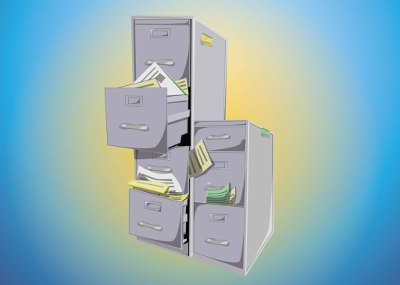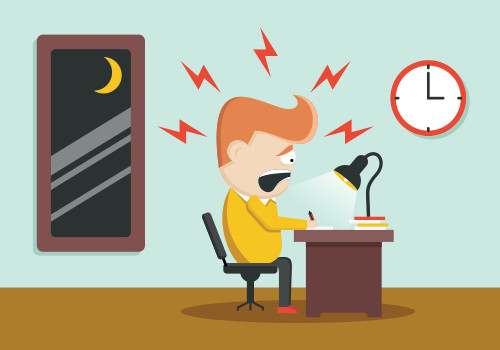
Requesting Your Employment Records & Personnel File (Sample Letter)
07 Oct 2017
You may have recently had some suspicions regarding your employer’s human resources practices. You may believe that your employer failed to properly account for the hours you worked, failed to pay you overtime, or terminated you for an unlawful reason. But before you drive down to the California labor board and file a wage claim, you may want to start by requesting your employment records and personnel file. The sample letter included in this article will help you to gauge whether your suspicions are in fact true. Employers must, as this article will further explain, provide payroll records, wage statement records, and personnel records to current and former employees upon request. Failure to provide these records can mean stiff monetary and in some circumstances criminal penalties. Once obtained, these documents can assist you in determining whether you have an actionable employment claim.
Which Employee Records Must My Employer Keep?

The California Industrial Welfare Commission’s Orders require employers to retain accurate time records for their employees as well as a personnel file, for a minimum of three years. With respect to a personnel file, the following types of records should be maintained within it: applications for employment, offer letters, records indicating changes in salary and position, forms signed by employees securing benefits, attendance records, performance evaluations, awards to employees, disciplinary actions, records for leaves of absences taken, and records of termination. With respect to time records, employers must keep records of the beginning and end of each work period, split shift interval, total hours, and lunch breaks.
Pursuant to California Labor Code §226, employers must also provide employees with itemized wage statements (paystubs) at the time of each payment or semimonthly that show among other things: gross wages earned, total hours worked, net wages earned, all deductions, the payment period, the name of the employee and last four digits of social security number or identification number, the name and address of the employer, all hourly rates (including overtime) in effect during the pay period and the number of hours worked at each rate.
What Employee Records Can I Inspect or Request Copies Of?
Under the Federal Fair Labor Standards Act, every employer must keep payroll records, employment contracts, written, agreements, and employee notices for at least three years from the last date of entry. Employers must also keep basic time and earning cards, wage rate tables, work schedules, and records of additions to or deductions from wages for a minimum of two years. Additionally, under state law, employers must keep records of the names and addresses of all employees, and daily hours and wages paid to all employees for a minimum of two years. California labor law also provides inspection rights, the employer must provide to an employee or former employee copies of payroll records (wage statements, paystubs, schedules, etc.) within twenty-one days of a request, or alternatively allow inspection of those records. The Labor Code provides penalties against employers who fail to comply.
Under California law current and Former Employees have the right to request the following records:
- Payroll records, meaning wage statements (paystubs), which current and former employees have a right to request pursuant to California Labor Code section 226.
- Personnel file, meaning records that were used to determine your qualifications for employment, promotion, performance, termination, and additional compensation, or that relate to any grievance or disciplinary action involving you. You have a right to request copies of these documents pursuant to Labor Code section 1198.5, and employers must provide them or face consequences.
- Instruments signed by you, meaning any documents signed by you relating to obtaining or holding employment, i.e. job applications, employment contracts, authorizations, etc. Really this translate to anything you may have signed during the course of employment or while applying for the job. California Labor Code section 432 requires that these employee record be provided to you upon request.
Should the Request for Copies of Employee Records and Personnel File be Written or Verbal?
Generally speaking, requests should be made in writing and in a manner that that provides a record of a transaction taking place. For example, an email or text message sent to human resources can be a good way to provide notice to your employer of their duty to provide you with a copy of your personnel file or other records. Sending a certified letter with return receipt requested is an even more ideal way to obtain employee records as it leaves little room for an employer to deny that it ever received a request, and avoid penalties down the road.
Sample Letter
There is no magic language necessary to trigger an employer’s duty to provide you copies of employment records or allow you to inspect them. As previously mentioned your request should be in writing, should be simple, and to the point without making any admissions or providing any reasoning. Remember, it is your right under California labor law to request these documents. A deadline should also be provided in accordance with the statutes referenced below. Here is sample language that can be incorporated into your email or letter:
Re: Request for Copy of Personnel File, Payroll Records, and Employee Agreements
Dear [Former Employer/Current Employer/Human Resources]:
Please take notice that this letter will serve as a request for my employment records maintained by your company. I am requesting complete copies of the following records:
1. Pursuant to Labor Code § 1198.5-personnel files and records relating to my performance or to any grievance concerning me.
2. Pursuant to Labor Code § 432-any instrument signed by me relating to the obtaining or holding of employment.
3. Pursuant to Labor Code § 226-any and all payroll records relating to me.
Please provide the aforementioned copies of employee records to me as soon as possible or alternatively provide a time and date for my inspection. Arrangements should be made so that I receive all the payroll records within twenty-one days, and thirty days for all other records mentioned.
Thank you for your prompt attention to this matter.
Sincerely,
[John Doe]
How Much Time Will My Employer Have to Respond?
An employer must respond to a request for copies of a current or former employee’s personnel file within 30 calendar days of receiving the request. Similarly, an employer must comply with a request for payroll records within 21 calendar days of receiving a request. Labor code section 432 is silent about the exact time that an employer has to respond to a request for instrumentalities signed by an employee; instead it simply states that the employee must be given the documents “upon request.”
What if My Employer Does Not Respond? Can I Recover Penalties?
Yes! With respect to your personnel file, your employer must respond your request within 30 days, and failure to respond can result in a $750 penalty, an injunction, and costs and attorney fees, that can be recovered by you in a civil lawsuit. Likewise, if your employer fails to provide you with the payroll records you requested within 21 calendar days, your employer can be hit with a $750, injunctive relief, and costs and attorney fees. You can hire an attorney for work related issues to accomplish this. Further it is can be considered a misdemeanor for your current/former employer not to comply with a fine of up to $1,000 or up to one year in prison. Current and former employers usually fret about such scenarios, which is why they generally comply right off the bat.
What If My Employer Failed To Keep Any Records?
The employee has the burden of proof to show that the employer failed to pay him or her overtime. Typically, this is evidenced through company records. What about situations were records do not exist or are inaccurate? Employees should not be penalized for their Employer’s failure to keep adequate records pertaining to overtime hours worked, and indeed are not.
Employees can meet their burden of proof in these actions by using their own testimony along with others showing that they in fact performed overtime work. The employee only needs to prove that some work was performed and that he or she was underpaid and produce sufficient evidence to establish a reasonable inference of the total amount of unpaid overtime. The employee need not prove the precise hours worked but can instead estimate his or her damages. Thereafter, the burden shifts to the employer to come forward with evidence of the exact number of hours performed, or provides evidence that negates the employee’s. If the employer fails to provide this evidence, the court may award damages to the employee for the unpaid overtime, even though it is an estimate.


